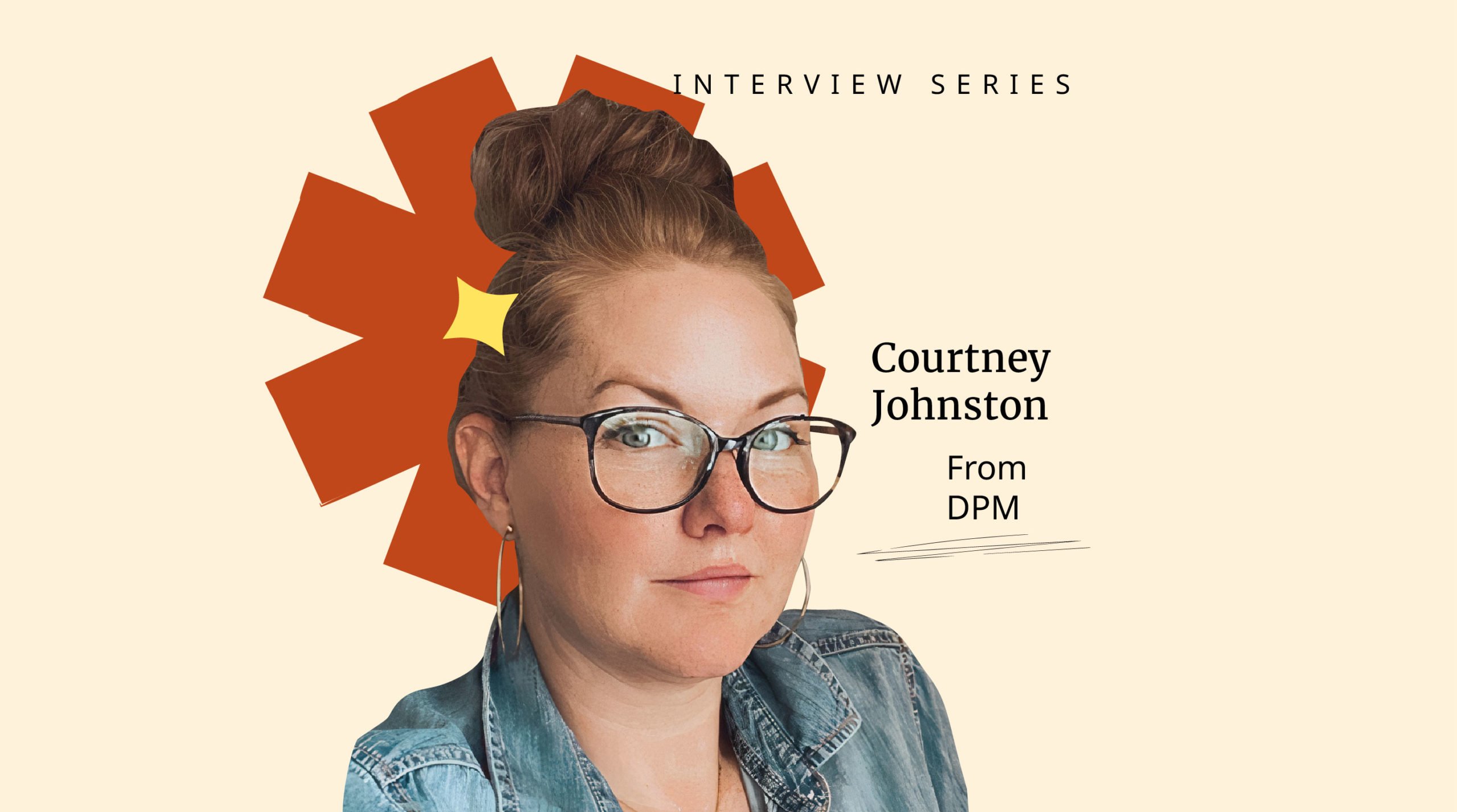We’re passionate about the world of work, and how we can make it better. To help satisfy our curiosity, we’ve launched an interview series where we pick the brains of experienced leaders, business owners, managers, and individual contributors to get their thoughts on how we can collectively build better.
We’d love to get to know you a bit better, tell us a bit about your backstory.
I’ve been working in design/advertising in some capacity for most of my career. I’ve been so lucky to work at amazing agencies and then made a huge pivot to management consulting for a handful of years within a design practice that I adored. My last big pivot was over to a smaller independent company on the product side which is a whole new world that is busy and fascinating.
If we were to ask a friend to describe your personality to us, what would they say?
Likely that I am bubbly and annoyingly optimistic! I have always been a glass half full of sunshine kind of person regardless of what life has thrown my way. I love to laugh and think that feeling joyful is a critical part of life.
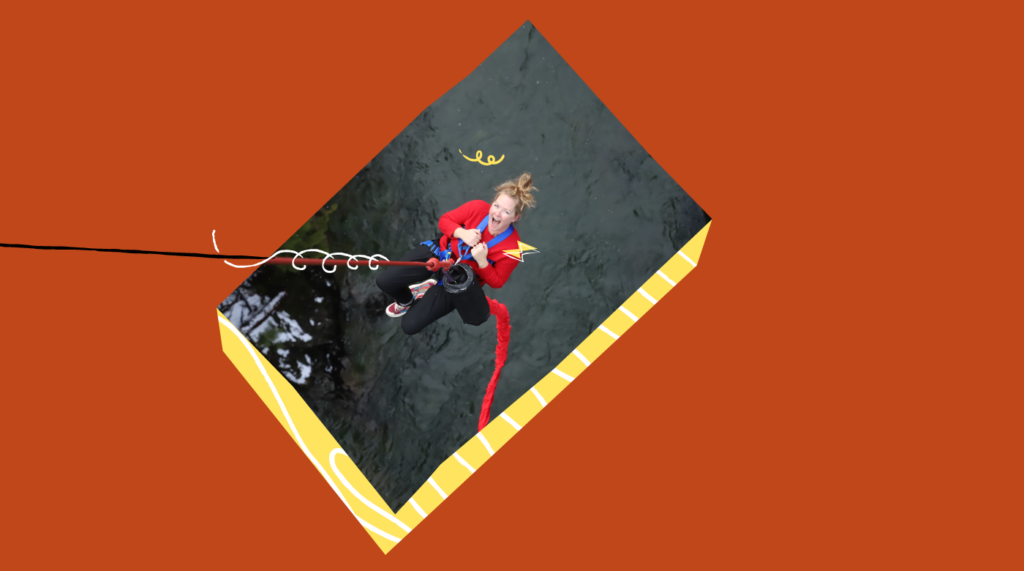
Thinking back to your career journey, what’s an interesting story that stands out?
In my 20’s I was new to digital and we were redesigning a portion of a client’s website. They were a holding company for dozens of large brands and needed to increase transparency in their corporate governance. We attempted to work with them to draft a brief for the work and understand their needs deeper but they actually refused and the single sentence we got from them was “make it like General Electric but better.” So my task was to make recommendations page by page following this brief.
I flew to NYC to present solo to the board of directors with a large print piece we had created. I was seated in the largest boardroom, around the largest round table I had ever seen in my life and I waited. I had worked weeks on this evaluation and was excited to share my findings and get the redesign approved. A board member walked in, sat himself at the direct opposite of the table. Said nothing to me, so I just started in on telling the story of the work that was on the table. He simply said “looks good” and walked out a few minutes later.
I was aghast - why didn’t they care? I tossed it up to simple lack of interest, but the next week the entire company folded. Turns out they were cooking the books for their billion-dollar company. What a wild ride that was!
What’s the most impactful lesson you've learned over your career thus far?
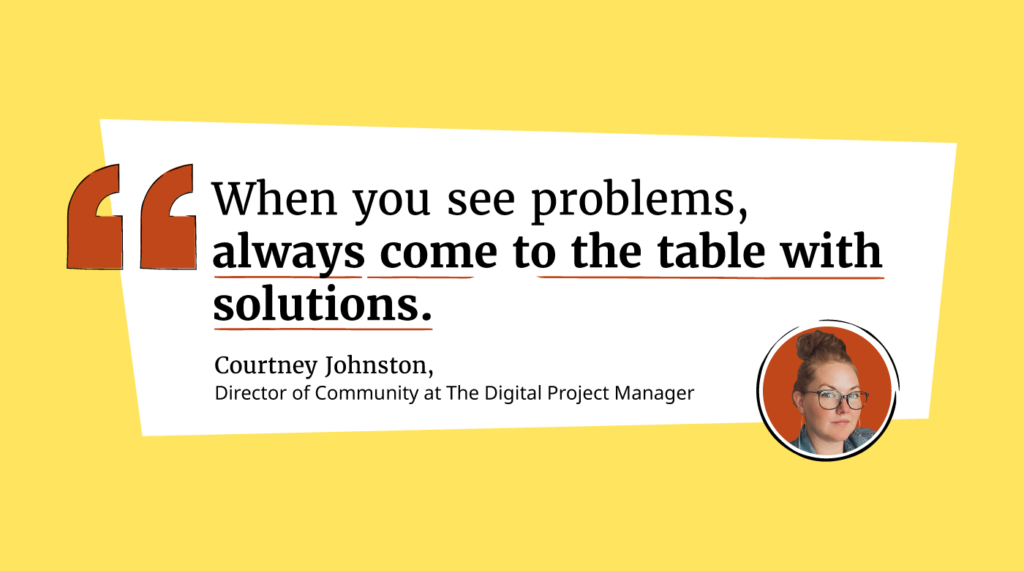
Thanks for giving us some insight into who you are! Let’s jump into things. When you hear the phrase “build a better world of work”, what comes to mind?
To me a better world of work means enabling humans to enjoy their careers, contributing to something that has meaning and impact to them and allowing them pathways of learning and growth.
For you, what’s the main blocker you see as standing in the way of building a better world of work?
Employers.
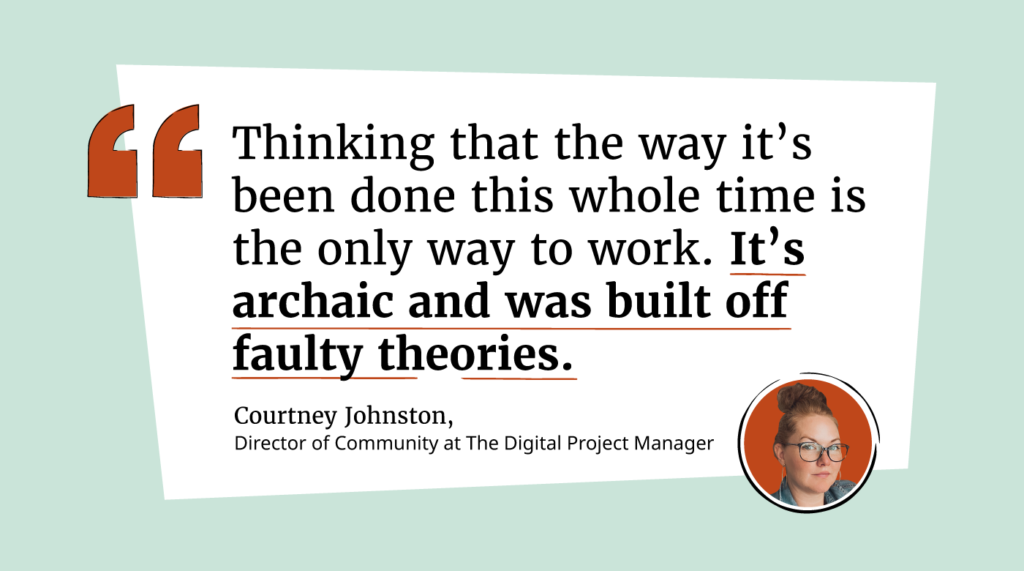
Seeing new ways of doing things, and then implementing the things that make your employees' lives better is the best contribution they can make.
What’s one thing within our control that we can practically do to build a better world of work today? And, how do you recommend going about it?
By being truly human. Bring your whole self to the work you do every day. Gone are the days of needing to wear a different facade or to pretend you are something you aren’t.
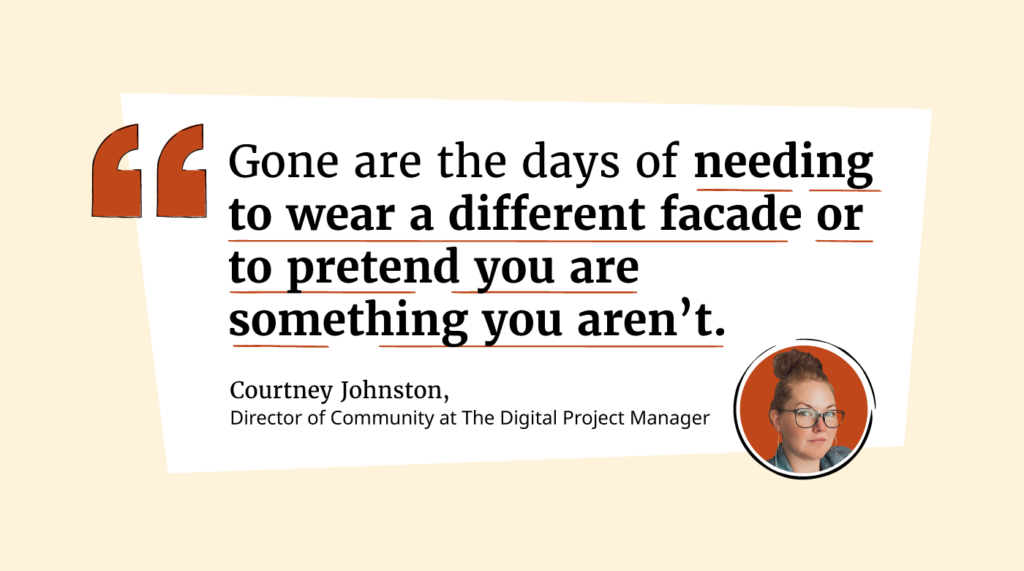
Bring your faults, your skills, your personality, your inner-ness, your YOU-ness. We work with humans, and check it out: they are flawed too, no one knows all the answers and the best way forward as a group of people rocketing towards a shared goal is to bring honesty and vulnerability to the table. And then watch the joy increase and the work get better and let people shine just how they are.
Can you share one thing you’ve experienced, seen, or read about that is leading us towards a better world of work?
Yes! “The Great Equalization”
The value exchange between the giver/employee and the receiver/employer is shifting massively in the last 12-18 months and it’s remarkable to see. I see this happening as employees balancing out the value they offer. I give you my X hours a week and you give me value back that matches. For some that is 4-day work weeks, better pay, more vacation time, balanced work and truly offering a work-life balance.
Equalizing what we offer to what we receive is wonderful to see, and I hope more employers explore what this really means to their individual employees.
I’m curious, thinking about building a better world of work, is there a company and/or leader who stands out to you as someone we should follow? If so, what are they up to?
Well, I’ll toot the horn where I work and our CEO, Ben Aston. At BWZ we are always exploring, experimenting, and have freedom to test and try new things in the products we work in. There isn’t an expectation of X hours a week, but rather KPI’s to which we are held accountable to. And failure is just fine for the most part if we can learn and iterate from it and take those learnings forward.
How can our readers follow your work?
You can find me over at TheDigitalProjectManager.com as the Director of Community Engagement trying to make that world of work for PM’s better, open, honest, fun, and joyful.
Thank you for adding your voice to People Managing People’s interview series on How to Build a Better World of Work!
Add Your Voice To The Conversation
Join our interview series and share your ideas for how we can build a better world of work!
Related Reads:
- Measuring Chaos Tolerance Will Help Us Build A Better World Of Work
- Reassessing Productivity To Build A Better World Of Work
- Miscommunication Is Holding Us Back From Building A Better World Of Work
- Defining Our Weaknesses Can Help Us Build A Better World Of Work
- Building A Better World Of Work Starts With Self Awareness
- Flexibility Will Help Build A Better World Of Work
Also Worth Checking Out: MBO Vs OKR: What’s The Difference?

